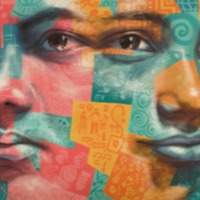
David Ninteretse
In 1993, Burundi’s first democratically elected president was assassinated in a coup d’état. Melchior Ndadaye, of the majority Hutu ethnic group, had sought during his three months in office to ease tensions between Hutu and the minority Tutsi, which had ruled Burundi for decades and continued to dominate the army. In response, Hutu paramilitary groups formed, and as quid pro quo attacks between Hutu and Tutsi escalated, Burundi spiraled into civil war.Among the many victims of the war were children. Indignant over Ndadaye’s death and the denial of political power the Hutu believed their due, extremist factions exhorted teenagers and even younger children to join their ranks, and for more than a decade, thousands of children lived in Burundi’s forests in deplorable conditions, raiding villages, camps, and military installations, both suffering and committing horrific violence. Many were girls kept as sexual slaves for older soldiers David became involved in the Burundi Democratic Youth when he was 15 years old. After the coup in 1993, he became a Hutu child soldier, David tells of the hunger and abuse he faced as a child soldier as he was forced to walk barefoot for days with little food and water. David tells of his experience as a child soldier, his attempts to gain an education to become a political leader, and his retirement.